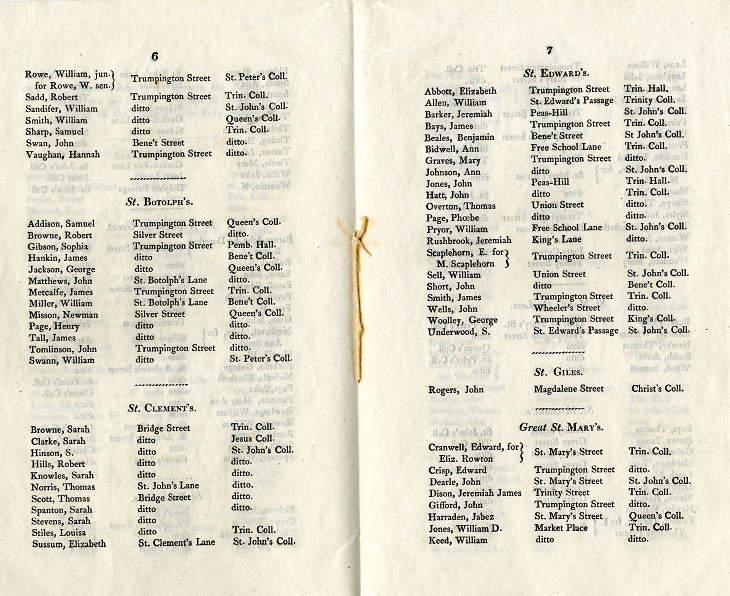This woman's work: female staff at St John's 1650-2011
“The College staff are the College’s bedrock”, and since the seventeenth century women have formed part of that bedrock. For many, the focus of women at Cambridge has been on their admittance to the University and the opening up of the traditionally male colleges to female academics and students, but women were in the Colleges centuries before that.
Steward’s receipt book, 1659-1660
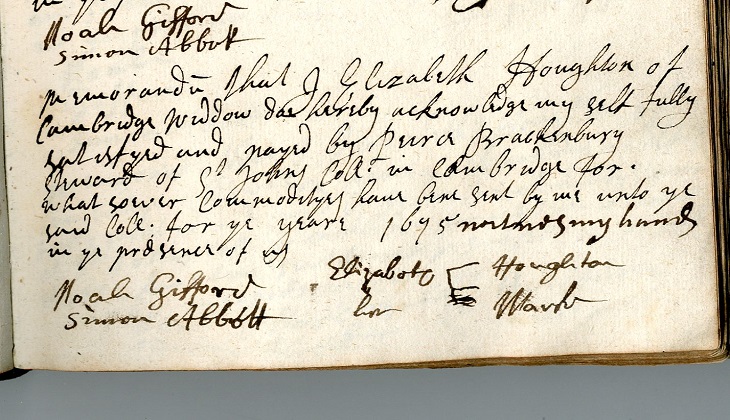
Plate washer’s payment, 1854
A receipt for income received by Mrs Ballard’s for her role as plate washer. It lists payments from the Bursar, the Steward, and Mr Peach (the Fellows’ Butler). The list also outlines Mrs Ballard’s expenses; it appears she was responsible for sourcing her own ‘dish cloths’.
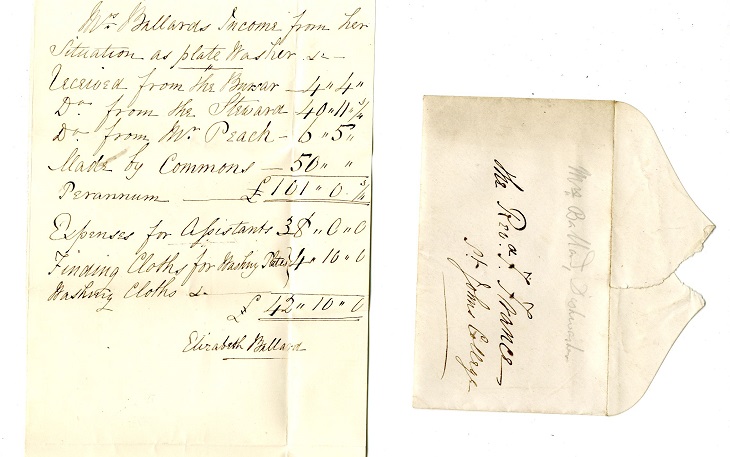
Bedmakers & Laundresses Book: 1839-1853
A notebook belonging to John Hymers,Tutor, which lists payments to bedmakers and laundresses, Hymers like other College tutors was responsible for collecting his students’ service charges and payments.
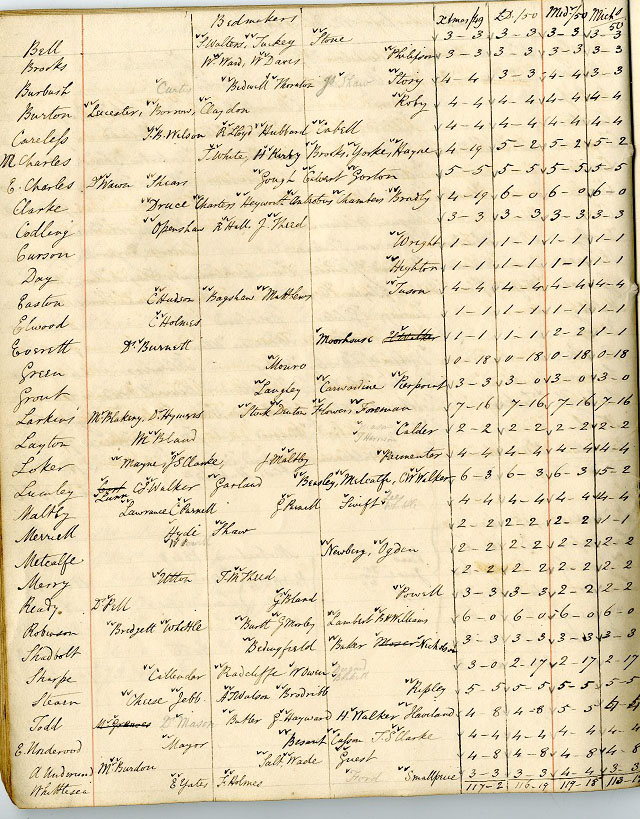
Suggested orders for Bedmakers, 1888
Draft set of orders for Bedmakers pay and pensions set out by the Rev. Edwin Hill, Fellow and Tutor.
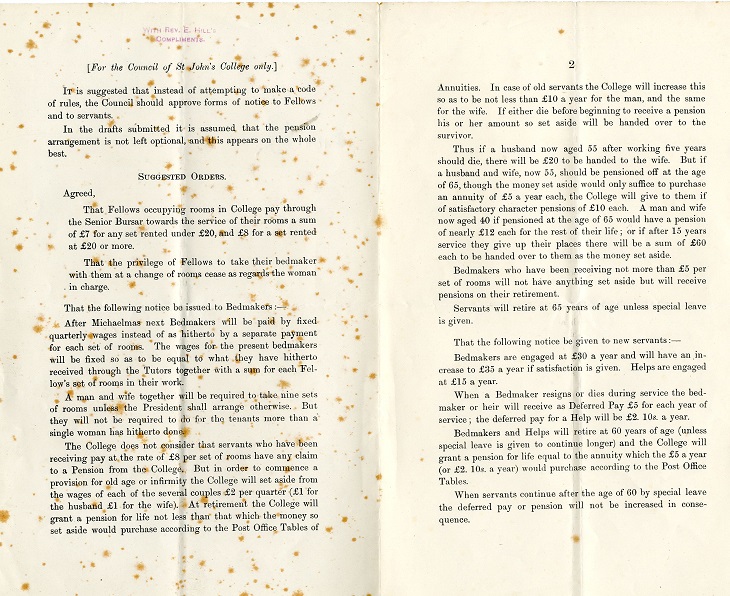
Testimonials & references,1895-1907
Letters of reference and testimonials for women applying to work for the College as servants – often they were merely switching Colleges. In the case of Mrs Hignell above, she had worked as a bedmaker at Gonville and Caius before applying to St John’s. Other women applied with their husbands, the couple would work as a team – often as gyp and bedmaker on the same staircase. If the couple worked as a ‘team’ it was often the husband’s responsibility to ensure that his wife was paid what she was owed – this of course did not always occur.
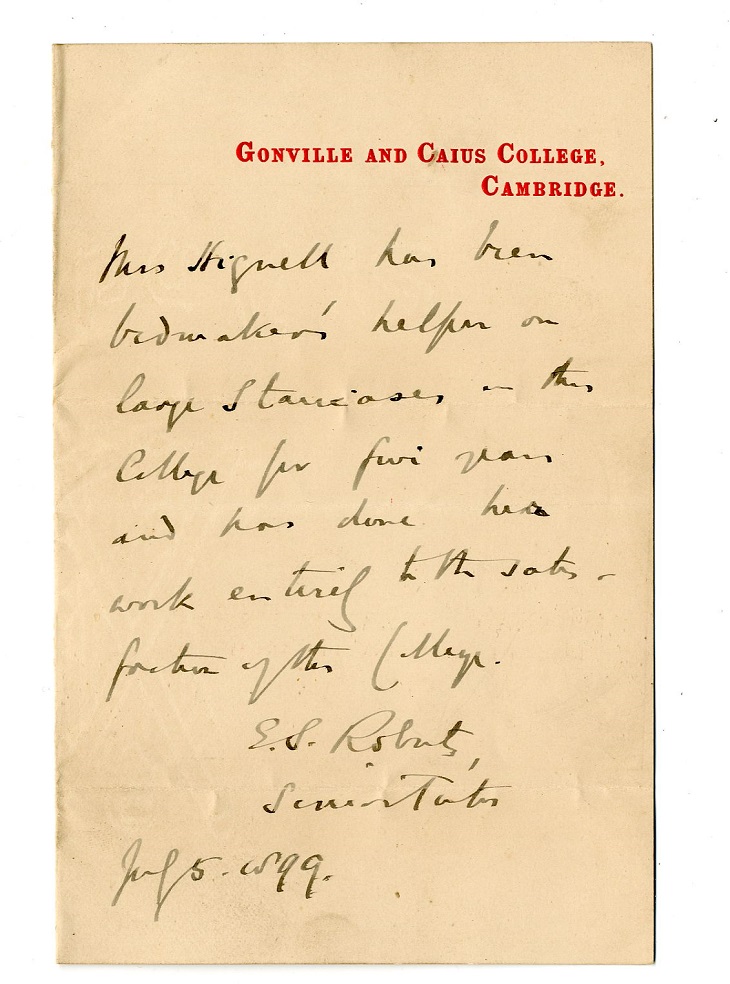
Letter from Corpus Christi College to the Master of St John's, 1890
A letter from C. Pollack, Corpus Christi College, to the Master of St John’s outlining the concerns of the Governors of the Old Schools regarding absenteeism within College staff - and the Governors’ conclusion that it was down to women with young children.
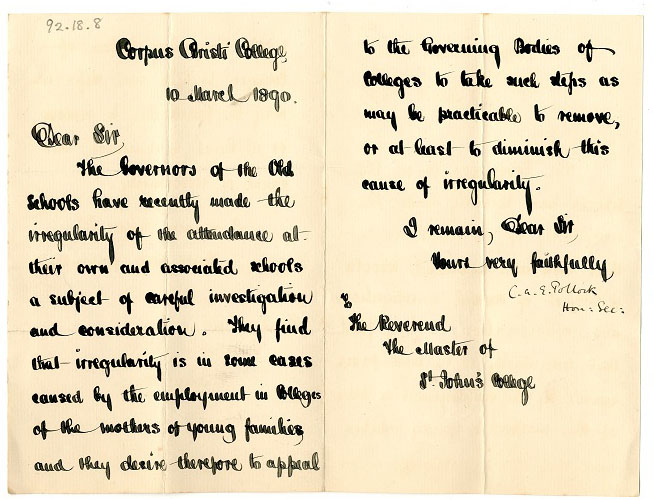
Bedmakers’ deferred pay, 3 Oct,1908
Letter from RF Scott, Master (1908-1933) to WH Bateson concerning the amounts of deferred pay owed to the College Bedmakers. Because they were women, Scott felt they should not be trusted with it.
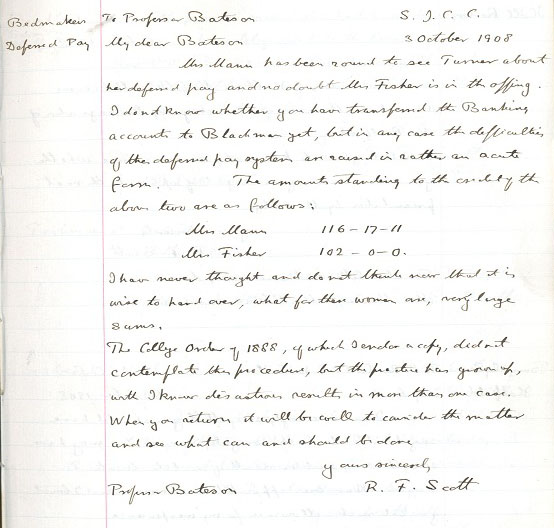
Landladies, 1818-1940
The University regulated the provision of undergraduate accommodation ‘rigorously’ and potential landladies/landlords were required to sign up to obtain a licence. Widows and women whose husbands were fighting at the front provided undergraduates with rooms as a means of supporting themselves and their families.
